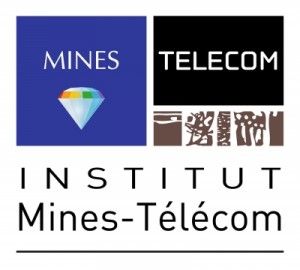The FIT consortium
FIT is provided by a consortium of five French institutions of higher education and research that are devoted to development of testbeds for network computer communications available to industries, scientific researchers, and education actors.
Université Pierre et Marie Curie (UPMC), Inria, Université de Strasbourg, Institut Mines Télécom and CNRS have been building wireless, sensing and mobility testbeds, the interfaces that allow the testbeds to operate in a federation, and the tools that easily access the testbeds.
FIT is one of 52 winning projects from the first wave of the French Ministry of Higher Education and Research’s “Équipements d’Excellence” (Equipex) research grant programme. Coordinated by Professor Serge Fdida of UPMC Sorbonne Universités and running over a nine-year period, the project will benefit from a 5.8 million euro grant from the French government.
FIT, a OneLab facility
FIT is part of OneLab facility which provides single entry point for federated infrastructures in the form of the Portal to browse and reserve resources, and the ratified governance structure to ensure FIT evolving existence even beyond the project life-time.
FIT partners are the key actors in OneLab federation.
A Federation of World Class
Computer Networking Testbeds
OneLab offers easy access to a variety of network communications environments: ad-hoc wireless networks with mobility and sensing capabilities; wireless broadband access and core networks; a global, public, fixed-line Internet; and both wireless and fixed-line emulated environments.
OneLab is a consortium consisting of five different higher education and research institutions. These institutions are devoted to making testbeds used for network computer communications available to enterprises, scientific researchers, and educators. Université Pierre et Marie Curie (UPMC), Inria, iMinds, TU Berlin, and the University of Thessaly have been putting in place the building blocks since 2006: the testbeds themselves; the interfaces allowing testbeds to operate in a federation; and the tools necessary to provide users easy access to the testbeds. These efforts culminated in 2014 with the creation of the OneLab consortium, led by UPMC.
The OneLab federation consists of the following four platforms:
- FIT IoT-LAB: large-scale Internet of Things testbeds with over 2700 wireless sensor nodes in a variety of topologies and environments, and both fixed and mobile nodes
- PlanetLab Europe: an Internet overlaid testbed for computer networking and distributed systems research with 300 servers offering access to Internet-connected Linux virtual machines at 150 sites across Europe
- FIT CorteXlab: a testbed for developing cognitive radio applications, with 80 wireless nodes deployed in a 180 m² isolated anechoic chamber and the possibility to customize the PHY layer of the nodes
- NITLab and FIT NITOS-Lab: four testbeds for experimentation across Wi-Fi connected nodes in both indoor/outdoor real world environments and controlled environments; NITLab (Volos) offers LTE connectivity




